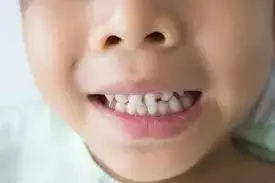- Home
- Medical news & Guidelines
- Anesthesiology
- Cardiology and CTVS
- Critical Care
- Dentistry
- Dermatology
- Diabetes and Endocrinology
- ENT
- Gastroenterology
- Medicine
- Nephrology
- Neurology
- Obstretics-Gynaecology
- Oncology
- Ophthalmology
- Orthopaedics
- Pediatrics-Neonatology
- Psychiatry
- Pulmonology
- Radiology
- Surgery
- Urology
- Laboratory Medicine
- Diet
- Nursing
- Paramedical
- Physiotherapy
- Health news
- Fact Check
- Bone Health Fact Check
- Brain Health Fact Check
- Cancer Related Fact Check
- Child Care Fact Check
- Dental and oral health fact check
- Diabetes and metabolic health fact check
- Diet and Nutrition Fact Check
- Eye and ENT Care Fact Check
- Fitness fact check
- Gut health fact check
- Heart health fact check
- Kidney health fact check
- Medical education fact check
- Men's health fact check
- Respiratory fact check
- Skin and hair care fact check
- Vaccine and Immunization fact check
- Women's health fact check
- AYUSH
- State News
- Andaman and Nicobar Islands
- Andhra Pradesh
- Arunachal Pradesh
- Assam
- Bihar
- Chandigarh
- Chattisgarh
- Dadra and Nagar Haveli
- Daman and Diu
- Delhi
- Goa
- Gujarat
- Haryana
- Himachal Pradesh
- Jammu & Kashmir
- Jharkhand
- Karnataka
- Kerala
- Ladakh
- Lakshadweep
- Madhya Pradesh
- Maharashtra
- Manipur
- Meghalaya
- Mizoram
- Nagaland
- Odisha
- Puducherry
- Punjab
- Rajasthan
- Sikkim
- Tamil Nadu
- Telangana
- Tripura
- Uttar Pradesh
- Uttrakhand
- West Bengal
- Medical Education
- Industry
High serum Vitamin D levels significantly linked to protection of caries development in children, reveals study

High serum Vitamin D levels are significantly linked to the protection of caries development in children, reveals a study published in the Dentistry Journal.
This systematic review critically evaluates the association between serum Vitamin D levels and dental caries incidence in the permanent teeth of children and adolescents. The search strategy comprised three databases (PubMed, Scopus, Embase), up to November 2023, targeting studies on the correlation between Vitamin D and dental caries in permanent dentition. The eligibility criteria focused on observational studies involving children and adolescents aged 12 to 19 years with permanent dentition. The screening process, guided by the PRISMA guidelines and the Newcastle–Ottawa Scale for quality assessment, resulted in the inclusion of eight studies conducted across various global regions from 2013 to 2023. The analysis revealed that Vitamin D insufficiency and deficiency were prevalent among the study populations, ranging from 17.3% to 69.4%. Specifically, children and adolescents with Vitamin D insufficiency (<50 nmol/L) were found to have significantly higher odds of developing caries, with odds ratios (ORs) ranging from 1.13 to 2.57. Conversely, two studies indicated a protective effect of higher
Vitamin D levels, with an OR of 0.80 and 0.59, respectively, for caries among children and adolescents with serum levels ≥ 50 nmol/L, suggesting an inverse relationship between Vitamin D status and caries risk. The results indicate both the protective role of adequate serum levels of Vitamin D above 20 ng/mL and the increased risk associated with insufficient levels below this threshold. However, the variations in study quality, methodologies and geographic settings underscore the challenges in drawing universal conclusions. Despite these limitations, our review suggests that improving Vitamin D status could be a beneficial component of preventive strategies against dental caries in children and adolescents, warranting further research to clarify the clinical significance of our findings.
Reference:
Buzatu R, Luca MM, Bumbu BA. A Systematic Review of the Relationship between Serum Vitamin D Levels and Caries in the Permanent Teeth of Children and Adolescents. Dentistry Journal. 2024; 12(4):117. https://doi.org/10.3390/dj12040117
Dr. Shravani Dali has completed her BDS from Pravara institute of medical sciences, loni. Following which she extensively worked in the healthcare sector for 2+ years. She has been actively involved in writing blogs in field of health and wellness. Currently she is pursuing her Masters of public health-health administration from Tata institute of social sciences. She can be contacted at editorial@medicaldialogues.in.
Dr Kamal Kant Kohli-MBBS, DTCD- a chest specialist with more than 30 years of practice and a flair for writing clinical articles, Dr Kamal Kant Kohli joined Medical Dialogues as a Chief Editor of Medical News. Besides writing articles, as an editor, he proofreads and verifies all the medical content published on Medical Dialogues including those coming from journals, studies,medical conferences,guidelines etc. Email: drkohli@medicaldialogues.in. Contact no. 011-43720751


